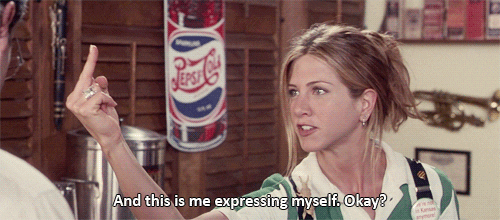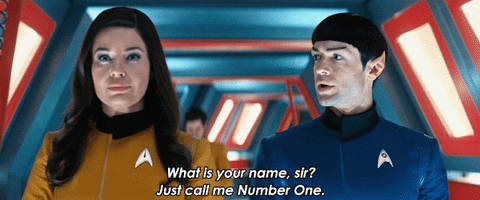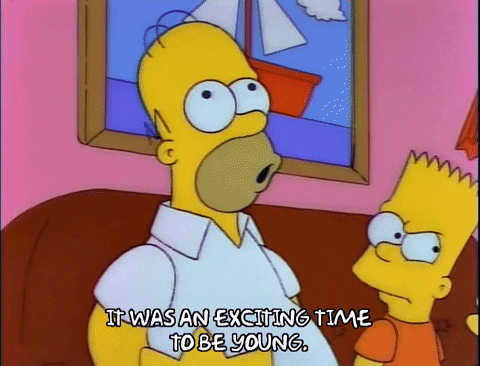Why Rebecca is my favorite novel
This is a post I’ve been laboring over for a good six months, because I’m talking about something that’s really important to me. It should maybe say something that I’ve taken way more time preparing to talk about Rebecca than I ever have with posts about my own books, but whatever. My books are what I write, but Rebecca is part of why I write. Rebecca is important, okay?
Rebecca was written by the inimitable Daphne du Maurier, who was also the author of the short story that inspired Hitchcock to make The Birds. Don’t bother reading it if you’re a big fan of the movie—they have very little in common besides the initial conceit of tweeting birds killing someone. Incidentally, Hitchcock made a film version of Rebecca too. I wouldn’t watch it before reading the book, though, because they had to change the ending to suit the Hollywood morality code, and it completely warps the themes of the book.
Here’s the thing. I fucking love Daphne du Maurier, because Rebecca is a literary masterpiece. It should be canon. It pisses me off that people don’t teach it in literature courses, at both the high school and college level. And in the rare case that it does get taught, it’s usually part of the “gothic” unit rather than the “feminist theory and gender studies and I will kick your ass if you try to shunt this into other unit besides the straight-up-Great-American-Novel unit” where it belongs.
The thing you have to be aware of is that Rebecca is a victim, partially, of it’s time. It was written in 1938, and even up until now, people (read: male publishers) don’t really know what to do with it. Why? Because they think it’s a fucking romance. But Rebecca is a romance the way Lolita is a romance, and by saying that what I mean is that it’s not. Rebecca, like Lolita, is the story of a relationship that’s being told by an extremely unreliable narrator. In Lolita, the unreliable narrator is pedophile and killer Humbert Humbert, and you’re not supposed to trust him. In Rebecca, the narrator is the young and naive second Mrs. Maxim de Winter, and you’re not supposed to trust her. And the fact that you shouldn’t trust her is meant to be the source of a slow-growing dread that fills the novel. You worry about her (and boy, should you) but if you have any real critical reading skills, you slowly start to realize that she is drinking the Kool-Aid but how, and that her interpretation of events is flawed. To put it mildly.
So the men who bought it saw a book written by a woman, about a woman, about a relationship, and despite the dramatic mystery parts, mostly it’s about woman problems, so they slapped a romantic suspense label on it and marketed it to women. Male privilege being what it was, I think a lot of it went over their heads, and so they missed that Rebecca is, at once, a deeply incisive analysis of the way traditional marriage functions, a depiction of a misogynistic society, the violence done to women who refuse to conform, and a terrifying look at internalized misogyny.
And I’m not trying to throw men under the bus, because, as I said, it’s a look at how good misogyny is at getting inside your head without you knowing it. A lot of women think of Rebecca as a romance too. We tend to read it—if we do at all, because it’s like, old enough to be a romance our moms read or whatever—when we’re still young. When we’re looking for romances but we aren’t quite ready to (or our parents won’t let us) buy the books that have half-naked dudes on the covers. I read Rebecca for the first time when I was seventeen. I thought it was romantic and dramatic as fuck. (Not coincidentally, that’s the same age I was when I read Wuthering Heights for the first time and swooned over Heathcliff, thinking that that book was a romance too. Seventeen year old girls are idiots). My best friend read it when she was roughly the same age—she remembers it as a grand romance as well. In fact, it’s weird how similar my reading and my best friend’s reading were, even though we wouldn’t meet for almost ten years after reading it.
We both thought it was a romance. And we both thought Rebecca was the villain, instead of the badass fucking mood she was.
Rebecca de Winter: A Fucking Mood
I read Rebecca for the second time in undergrad, and that was when I realized how fucking cool literary fiction is. It’s part of what made me change from my dual criminal justice/psych majors to creative writing. It was a completely different book the second time I read it. And that’s nothing compared to what I got out of it while reading Rebecca for a third time as a grown woman with a Master’s degree in English under my belt. It was an exciting but almost sickening experience (same goes with Wuthering Heights, actually) that last time. In part because I had way more worldly knowledge and my interpretation of the content was more accurate, but also because I realized anew that in both of my previous readings, I had fallen into exactly the same trap as the unnamed narrator of the book, albeit to lesser degree the second time.
I didn’t question what I was given.
If you haven’t read the book before, or if you read it once as a teenager and barely remember it, I highly recommend you try it again. And this time, question everything. To get you started, I’ve included three things to keep an eye out for as you read, English class style.
1. Names matter, ya’ll. Cue my sophomore-level Creative Writing teacher almost snapping a pencil in half when I blithely told her I didn’t think names mattered all that much, only to have her point out that in fiction, names are identity. (You can probably tell I internalized this lesson as a writer, unless you thought it was an accident that my straight-arrow cop was named Rook and the guy with dissociative fugues was called Ghost). The point is, take notice not only of what people are named, but what they call each other.
2. The rhododendrons matter too, ya’ll. It’s like symbolism and shit. They’re how you know that the narrator’s judgments of Rebecca are about more than just jealousy.
3. The fact that the novel takes place in flashback has profound importance. The narrator (who still, even in flashback, does not have a first name, see again point #1) is already aware of the ending as she chooses her words from the very first scene, and it shouldn’t take long for you to see that these words are biased. Her agenda colors every single description she gives to other characters, to Manderley, to the rhododendrons, and even to herself. Note the way the narrator describes people who reinforce gender roles. Note the way the narrator describes people who buck gender roles. Can you see a difference? Especially note the way she describes the people who loved Rebecca versus those who hated her. (Consider that literally everything you’re getting about Mrs. Danvers might be BS—a frightening thought, eh?) There’s serious skewing of the lens there, kids. Can you guess where that skewing is coming from? (Want to get the answer off my paper? It’s internalized misogyny and patriarchal gender roles. It’s what the whole book is about. You’re welcome).
And this is why this book is my favorite book of all time. It taught me new things about myself. It taught me new things about the world, and it did it while playing out a genuinely creepy mystery with a deeply unsettling ending.
So pick it up and give it a try if you haven’t read it. Try it again if you have. But bear in mind as you do that if your copy looks like my first copy did, you can’t trust the pink cover with its grand mansion and swirling clouds and the tagline of the original novel of romantic suspense!. Rebecca is not a romance.
It’s a horror novel.





